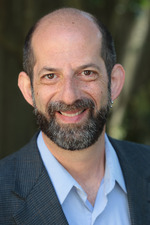Act I: When Good Religion Goes Bad
Some of my perspective on the tragedy that befell Tyler Clementi and his family comes from my years directing plays and operas.
When we think about the damage caused by Queerphobic religion, mostly we think about children, whose sense of self is so undermined before they grow to have a clearer sense of perspective that they ultimately see dying as better than living as Queer. When we run to save lives, we rescue children first, but the extraordinary interview with Jane Clementi, mother of Queer teen suicide Tyler Clementi, teaches us that we are wrong if we think only children need rescue from Queerphobia.
The influence of religion in life is intentionally all-pervasive. Religion often teaches how parents and children should relate to one another. Queerphobic religion not only turns children of every age against themselves, it turns parents against children, can turn children against their coming-out parents, and put loving parents at war against their own parental instincts.
The story of the Clementi family as told in the New York Times article gives evidence of really bad guidance from their church.
Act II: Prejudice vs. Compassion
At the time Tyler sat down to tell his parents he was gay, she believed that homosexuality was a sin, as her evangelical church taught. She said she was not ready to tell friends, protecting her son — and herself — from what would surely be the harsh judgments of others.
“It did not change the fact that I loved my son,” she said. “I did need to think about how that would fit into my thoughts on homosexuality.”
Yet it did not occur to her that Tyler would think she did not accept him.
In my former career as a theatre director I learned that if my concept of how the production should go was frustrating most of the cast, my concept was likely wrong. When religious doctrine contradicts basic human impulses to the degree Mrs. Clementi describes and makes that many people so deeply unhappy, the doctrine is likely wrong. A rule of thumb for directors and religious leaders alike: If concept proves irreconcilable with essential humanity, change the concept.
Here's what I see in just the brief excerpt above: Tyler couldn't communicate openly with his parents. His parents couldn't communicate with their friends. Their community was primed to judge its members harshly. One doctrine, one theory -- religious Queerphobia -- created so much dysfunction and dissonance. Acceptance, instead, of the truth of God's creation of a Queer and diverse world would have generated harmony and healing energy, perhaps enough that the Clementis might not have lost their son. Acceptance and celebration of Queerness not only saves anxious youth, but rescues loving adults from tragedy, also.
Act III: What Religion-Infused Communities Can Do Well, But Often Don't
Religious institutions, traditions, and authorities can be of unmatchable benefit in the life of their communities. They don't have to be without doctrine or concept or norms and just nod “yes” to everything. They can teach. However, they must look beyond the theoretical coherency of doctrine. They have to look at the lives being led. Who are the children of their community? Who are the parents and other adults? If congregants don't fit the concept, institutional leaders (lay and professional on every level) need to ask themselves why they themselves don't accept the lives of the people they are hoping to shelter and love. And when enough people are unhappy in the same way as in the Clementis' community, it is time to sit down with leadership and discuss the tension between the theory and practice of God's will.
In the months after Tyler’s death, some of Ms. Clementi’s friends confided that they, too, had gay children. She blames religion for the shame surrounding it — in the conversation about coming out, Tyler told his mother he did not think he could be Christian and gay.
What's wrong with this picture? Everything. Why should parents have to “confide” that their children are gay? If that many parents are experiencing it, then it's a natural phenomenon, not an aberration. Why should religion be the source of shame? Religion should liberate us from shame. Why should Christianity and gayness – two core elements of Tyler's identity – have been incompatible in his mind?
It may sound strange to describe it in this way (I'll happily take feedback on how to fix this metaphor), but God isn't the director of our lives, God is merely the absent producer. I say merely, because God requires human beings to intuit and interpret the Divine will, to act out and improvise the script of life. God needs us as actors and directors, as a collaborative team, to make something just and beautiful of life. Only within the narratives of scripture is God both the omniscient author of law and the omnipotent director of action. Not in the stories we live out from day to day.
Religiously infused life should be great, uplifting art, it shouldn't be tragedy.
Epilogue
Did I tell you what happened at the play? We were at the back of the theater, standing there in the dark, all of a sudden I feel one of 'em [my alien space chums] tug my sleeve, whispers, "Trudy, look." I said, "Yeah, goose bumps. You definitely got goose bumps. You really like the play that much?" They said it wasn't gave 'em goose bumps, it was the audience.
I forgot to tell 'em to watch the play; they'd been watching the audience! Yeah, to see a group of strangers sitting together in the dark, laughing and crying about the same things...that just knocked 'em out. They said, "Trudy, the play was soup...the audience...art."
From The Search for Intelligent Life in the Universe
by Jane Wagner and Lily Tomlin
 Tuesday, December 25, 2012 at 08:16PM
Tuesday, December 25, 2012 at 08:16PM 